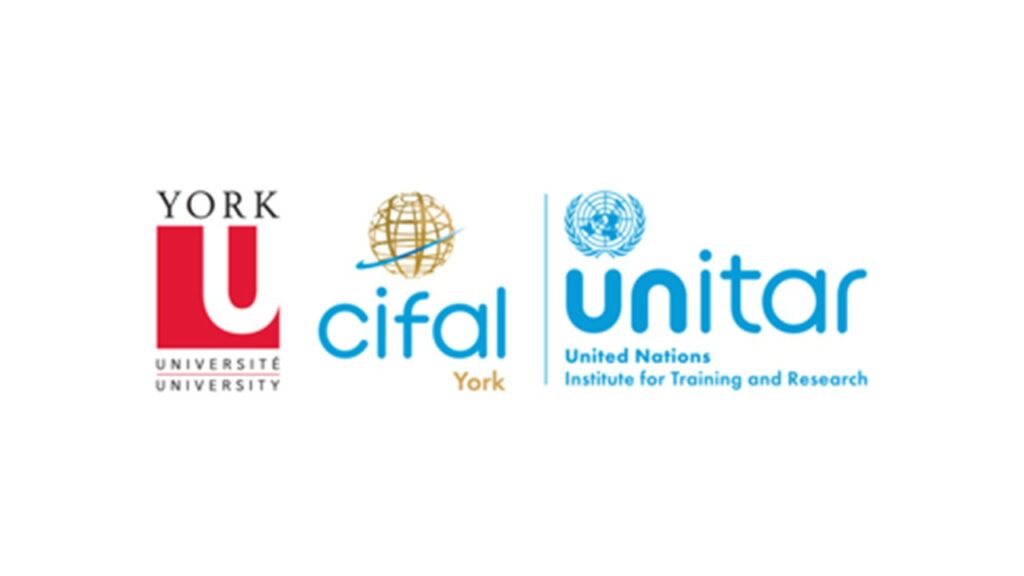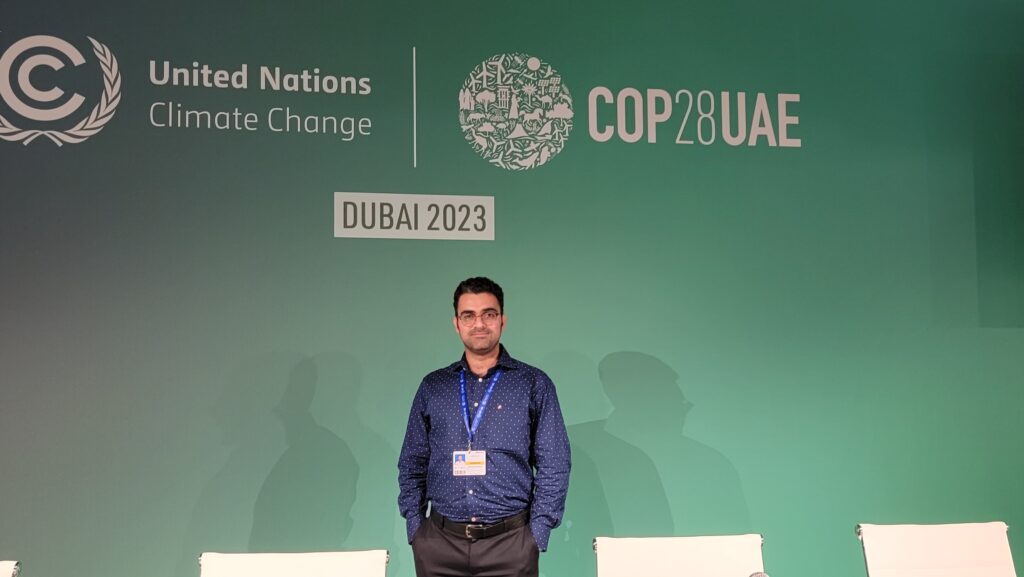Start Date: September 23, 2024
End Date: October 24, 2024
Mondays and Thursdays: 4:00-5:30 PM EDT (Toronto)

Course Description
In an era where global environmental challenges are more pressing than ever, the ability to influence positive change through innovative approaches is paramount. The "Eco-Edutainment" course is a cutting-edge program crafted to empower the next generation of game designers, environmental advocates, and social innovators. This course provides participants with the skills, knowledge, and tools to create impactful serious games that address critical environmental issues and inspire real-world action.
A microcredit certificate will be issued to all participants from CIFAL York.
Course Outline

Learning Objectives
- Equip participants with a deep understanding of the principles of serious game design, emphasizing their application to environmental themes.
- Foster creativity and critical thinking by guiding participants through the process of designing and developing game prototypes that address specific environmental challenges.
- Explore advanced game mechanics and dynamics that enhance player engagement while conveying meaningful environmental messages.
- Integrate educational content seamlessly into gameplay, ensuring a balance between fun and learning.
- Encourage the application of behavioral change theories in game design to maximize the impact on player attitudes and actions regarding environmental sustainability.
- Provide hands-on experience with industry-standard game design tools, empowering participants to bring their concepts to life.

Key Course Features
- Comprehensive Curriculum: Covering everything from the fundamentals of serious game design to advanced mechanics and player engagement strategies.
- Hands-On Prototyping: Participants will develop their game prototypes, receiving expert feedback throughout the process.
- Behavioral Change Integration: Learn how to incorporate proven behavioral change theories into game design to enhance impact.
- Cutting-Edge Tools: Gain proficiency in leading game design software and tools, including Unity, Unreal Engine, and asset creation platforms like Blender and Second Life.
- Expert Instruction: Led by industry veterans and environmental thought leaders, this course provides participants with insights and mentorship from the best in the field.
- Collaborative Environment: Work alongside like-minded peers in a supportive and dynamic learning environment, fostering creativity and innovation.

Target Participants
This course is designed for students who are aspiring game designers, environmentalists, or educators, who are passionate about using interactive media to drive environmental awareness and change. This course offers an unparalleled opportunity for undergraduate and graduate students to combine their creativity with purpose.
Please note that you do not need to have a background in programming or coding to successfully complete this course.
Course Instructor

Peyman Naeemi
Peyman Naeemi is a Multimedia Specialist with over 10 years in broadcast media. Former Editor in Chief and Video Journalist, he has led diverse multimedia projects for major news agencies. Currently pursuing a Ph.D., Peyman is a dedicated environmental activist and filmmaker. Peyman’s PhD research focuses on environmental humanities and education through digital media, with a specific emphasis on environmental communication. Recently, his documentary film, “A Faithful Commitment to Sustainability” has been accepted for screening at COP28 as it showcases Canada’s green journey towards sustainability. He also developed "Pandemic Resilience" a serious game that educates players on pandemic management by immersing them in decision-making scenarios where they must balance public health, mental well-being, economic stability, and global collaboration. Through strategic gameplay, players gain a deeper understanding of the complexities and interdependencies involved in responding to a pandemic, fostering critical thinking, empathy, and preparedness for real-world challenges. His last project is directing an animation film "Jonathan" that educates children about Climate Change, Plastic pollution, and peaceful protest for addressing environmental issues.
Combining media prowess with environmental advocacy, Peyman is committed to driving positive change and inspiring action.
Course Syllabus
Day 1 - Monday, September 23:
- Introduction to Serious Games and Their Impact on Environmental Issues, Overview of the Nature of Serious Games and their Applications.
- Workshop 1: Showcasing Successful and Impactful Serious Games.
Day 2 - Thursday, September 26:
- Understanding Environmental hazards and Potential Solutions, How to prepare story for your game.
- Workshop 2: Decide what climate issue you want to work on and what is your story.
Day 3 - Monday, September 30:
- Fundamentals of Game Design: Core elements such as mechanics, dynamics, and aesthetics. Game Design Process: From concept to prototype, including brainstorming, storyboarding, and iteration.
- Workshop 3: Player Engagement: Techniques to keep players interested and invested in the game.
Day 4 - Thursday, October 3:
- Game Design tools and integrating environmental themes into games, Introduction to tools and software for designing games.
- Workshop 4: Identifying Key Environmental Messages: What do you want players to learn or feel?
Day 5 - Monday, October 7:
- Developing Game Prototypes, Prototyping Basics: Importance and methods of creating prototypes.
- Workshop 5: Hands-On Prototype Development: Guided session where participants start creating their game prototypes.
Day 6 - Thursday, October 10:
- Advanced Game Mechanics: In-depth look at mechanics that can enhance environmental games, Player Interaction, Challenges and Rewards, Iterative Design.
- Workshop 6: Use game mechanics to enhance the structure of your game
READING WEEK BREAK - OCTOBER 14 - 20
Day 7 - October 21:
- Finalizing and Polishing the Game, Testing and Debugging, Receiving and Incorporating Feedback
- Workshop 7: Preparing for Presentation: How to effectively showcase the game’s features and educational content.
Day 8 - October 24:
- Presenting and Reflecting, Participants present their finished games to the group.
- Discussion and Feedback: Group discussion on each game’s strengths and areas for improvement.
- Reflection on Learning: Participants reflect on what they’ve learned about game design and environmental issues.
- Future Steps: The best game developed by paricipants will be supported by CIFAL for preparing an online version.
Registration
Potential applicants should complete the registration form.
Registration Deadline: September 16, 2024
Minimum enrollment to run the course: 12
Maximum enrollment: 20
Registration Fee
This workshop is being offered free of charge to all part-time and full-time university students.
To register, please visit the registration page here.
Course Coordinator
Mr. Francesco del Carpio, CIFAL York - fdcarpio@yorku.ca
